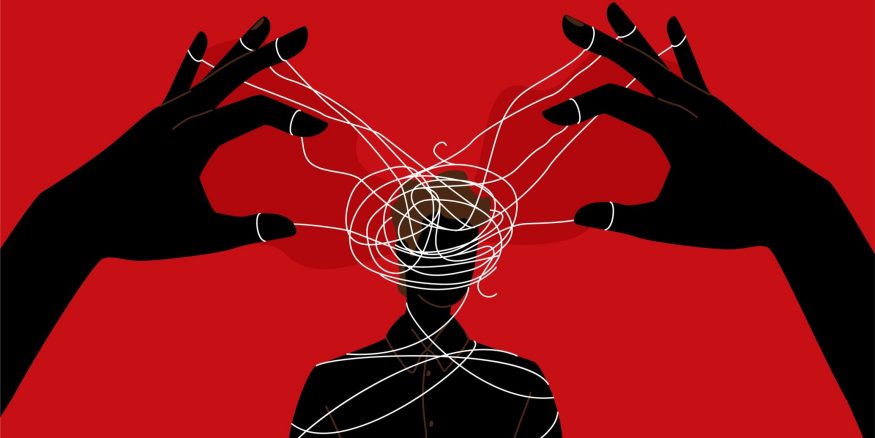Spotting the signs of coercive control: the role of healthcare professionals
10 May 2024
Coercive control can have a devastating impact on its victims, and spotting signs early on is crucial. In this blog Dr Anna Sydor, a Senior Lecturer in Adult Nursing at Cardiff University, outlines her upcoming research into how healthcare professionals, particularly midwives, can identify and support victims of coercive control.
Coercive control refers to a pattern of repeated behaviour in a personal relationship that makes the victim feel controlled, threatened, isolated, dependent, or abused. Types of behaviour common in coercive control include isolating the victim from family and friends, controlling access to money and how it’s spent, monitoring activities and movement, belittling and demeaning comments, and threats of physical harm.
There were 43,774 offences of coercive control recorded by the police in England and Wales (excluding Devon and Cornwall) in the year ending March 2023. Coercive control has been a criminal offence since 2015 but can be hard to identify and challenging to prosecute due to the clandestine nature of the offence, meaning that true victim numbers are unknown. Coercive control is present in most cases of domestic abuse, but also happens when there is no violence or injury to the victim. It may escalate at any point into violence and coercive control is usually present in cases of intimate partner homicide.
Impact on victims
Anyone can be a victim of domestic abuse or coercive control, but it is disproportionately women who are affected, which may be due to societal norms and entrenched gender behaviours and roles that are perceived as normal.
Coercive control can have devastating and long-lasting effects on the victim’s mental and physical well-being, as well as for any children they might have. Victims may experience long term physical and mental health problems, negative coping strategies such as drug or alcohol abuse, and death or suicide sometimes result. Exposure to coercive control can also have impacts on child development and the mental health of children, as well as damaging the relationship between the victim and their children.
Victims may be unaware or not understand what is happening to them. Coercive control takes place in a private space, perpetrators often behave differently in public, and the nature of abuse undermines the victim so that they do not feel confident in knowing there is a problem. A perpetrator may isolate the victim so that there are few people to discuss issues with, and the perpetrator becomes the victim’s sole source of truth. Added to that a relationship may be a victim’s first or only one, leading them to believe their experience is common and normal.

Researching the role of healthcare professionals
Healthcare professionals meet many people and may be able to see signs of problems or abuse in their patients’ relationships. Whilst there are tools to help healthcare professionals identify and support victims of physical domestic abuse, coercive control is harder to recognise because it operates insidiously and subtly, and the victim does not necessarily recognise it is happening to them.
It is not yet clear how healthcare professionals can support victims to identify what is happening to them or what interventions may support victims and their children following identification. However, healthcare professionals are ideally placed to identify cases of abuse and coercive control, as they may encounter signs during routine care or when discussing health concerns of the victim or their child, such as during visits by a health visitor or midwife.
As part of my post-doctoral research fellowship, I am going to undertake a scoping review which will systematically search for and collate evidence to find out what is known about coercive control identification and how victims can be supported. This will be done with the Welsh Centre for Evidence-Based Care and will be informed by a steering group made up of people who have lived experience of coercive control, healthcare professionals, and others who work with victims of abuse. Pregnancy is often a starting point for abuse or a point of escalation, so I am particularly interested in what midwives can do during pregnancy to identify and support women experiencing coercive control.
Supporting victims
This review is being funded by Wellbeing of Women, the Royal College of Midwives, and the Burdett Trust for Nursing and is the first stage in a programme of research. If a tool and/or intervention is found, then it may need to be adapted and then tested for use in different healthcare settings and by different healthcare professionals. Given the nature of pregnancy as a point that abuse escalates, midwifery care would be a suitable first healthcare setting for a developed tool. The experiences of healthcare professionals working with victims and identifying problems will also be important to uncover as this will inform the way that they use tools or interventions.
Ultimately this review is the first step in developing ways to support victims of coercive control, identify problems sooner, and then provide support to enable victims to make decisions about their lives. Doing this may reduce the long-term impacts of this sort of abuse but may also prevent coercive control escalating into other forms of abuse.
I would like to thank the Security, Crime, and Intelligence Innovation Institute for supporting the initial stages of this research through their Kickstarter funding scheme. The funding I received allowed me to facilitate an initial meeting aimed at gathering input from stakeholders and supported the preparation of my fellowship application to fund the scoping review. To learn more about the work of the Security, Crime, and Intelligence Innovation Institute visit their website or follow them on social media. If you’d like to learn more about any future funding opportunities available from the institute, contact SCIII@cardiff.ac.uk